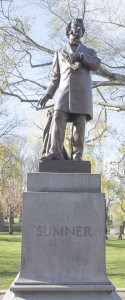
‘John Masters is now an almost forgotten novelist… A figure of quiet authority, he receives, in James Salter’s memoir Burning the Days (1997), the finest compliment a man could ever pay another: “It was to his house one would hurry in case of grave danger. He would know without hesitation what to do.”’
So begins Michael Dirda’s glowing NYRB review of Salter’s almost 60 year writing career. A West Pointer, Salter flew in combat during Korea. He knew the ‘real deal’ when he saw it.
Twelve years before Salter received his commission in 1945, John Masters had graduated Sandhurst at 19 and shipped out as an infantry subaltern in the Indian Army. He resigned his commission shortly after Indian Independence in 1947.
I first read John Masters in the late 1960s at the insistence of my Aunt Harriet whose taste in books I learnt at an early age to trust. His two memoirs Bugles and a Tiger (1956) and The Road Past Mandalay (1961) proved unforgettable.
My feeling 45 years ago was precisely Salter’s.
Bugles paints a fascinating picture of soldiering on India’s Northwest Frontier along, that is, its border with Afghanistan. It is also a remarkable story of ‘coming of age’ as an intellectual and as a man among men of different cultures. Few have experienced as much by the time they’re 26.
Masters writes of the interbellum from a distance and through the prism of WWII. That experience he summarises in Road which ends when he’s 31. If having a ‘good war’ means survival, rapid promotion and decoration, Masters had one. But Road leaves little of the horror of the Burma campaign unnoted – and before it, Iraq and Syria.
I dipped into Bugles last evening. I found myself reading about Masters’s failure in his first post to defend a sergeant to a superior officer for carrying out his inappropriate order on the parade ground.
It was the worst thing that I ever did in the army, because in it I showed cowardice and disloyalty. The only excuses I could find for myself were that it happened very quickly and that I was very young. It had a result, though. I had been frightened of the lieutenant, frightened of being reprimanded, frightened of failure even in the smallest endeavour. I discovered now that being ashamed of yourself is worse than any fear. Duty, orders, loyalty, obedience – all things boiled down to one simple idea: whatever the consequences, a man must act so that he can live with himself.

I read this passage on the evening when five Supreme Court justices ended the Federal government’s ability to enforce voting rights in nine former slave states. Protecting one’s right to vote is now the individual’s responsibility, not the government’s duty.
None of the five had either of Masters’s excuses – or any law – to support abandoning citizens to the whims of governments with experience in blocking access to the polls. Seventh Circuit judge and conservative legal theoristRichard A. Posner began his post on Slate on June 26:
Shelby County v. Holder, decided Tuesday, struck down a key part of the Voting Rights Act (the part requiring certain states with a history of racial discrimination in voting to obtain federal permission in advance to change their voting procedures—called “preclearance”) as violating the “fundamental principle of equal sovereignty” of the states. This is a principle of constitutional law of which I had never heard—for the excellent reason that … there is no such principle.
Confronted with a ‘case of grave danger’, the five denied refuge to their countrymen. How can they live with themselves? How can we, the five’s constituents, live with what they’ve done?
Notes
1. John Masters, Bugles and a Tiger [1956] (London: Cassell & Co., 2002), p. 21.
Recent Comments